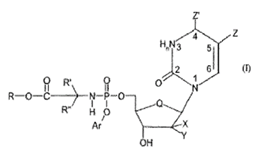Geographical Indications: Commission proposes New Regulation
A "geographical indication" is a sign assuring consumers that produce comes from, or has been processed in a particular region renowned for the quality of such produce. Familiar examples include Champagne, Scotch whisky and Parma ham. "Geographical indications" are also known as indications of source or appellations of origin. In this country, geographical indications are protected by the law of passing off (see my case note on William Grant & Sons Ltd. and others v Glen Catrine Bonded Warehouse Limited and Others, registration of collective and certification marks under the Trade Marks Act 1994 and Council Regs No 2081/92 and 1493/1999. It is in respect of this special legislation that changes have been proposed.
According to the Commission, "more than 700 names, designating inter alia over 150 cheeses, 160 meat and meat-based products, 150 fresh or processed fruits or vegetables and 80 types of
olive oil, have been registered in this context." Unfortunately, that regime has been held to be incompatible with art 3 (1) TRIPs:
The Commission's proposal is in response to the WTO Dispute Settlement Board's finding of incompatibility. The main differences appear to be that the requirement for "reciprocity and equivalence" under the present legislation will be deleted and third country nationals will be allowed to submit applications as well as objections directly without involving their governments.
Furthermore, the registration procedure will be simplified. A single document for applications containing all the necessary data for registration, information and inspection will be produced. For all that, it still seems a long winded process.
According to the Commission, "more than 700 names, designating inter alia over 150 cheeses, 160 meat and meat-based products, 150 fresh or processed fruits or vegetables and 80 types of
olive oil, have been registered in this context." Unfortunately, that regime has been held to be incompatible with art 3 (1) TRIPs:
"Each Member shall accord to the nationals of other Members treatment no less favourable than that it accords to its own nationals with regard to the protection (3) of intellectual property, subject to the exceptions already provided in, respectively, the Paris Convention (1967), the Berne Convention (1971), the Rome Convention or the
Treaty on Intellectual Property in Respect of Integrated Circuits. In respect of performers, producers of phonograms and broadcasting organizations, this obligation only applies in respect of the rights provided under this Agreement. Any Member availing itself of the possibilities provided in Article 6 of the Berne Convention (1971) or paragraph 1(b) of Article 16 of the Rome Convention shall make a notification as foreseen in those provisions to the Council for TRIPS."
The Commission's proposal is in response to the WTO Dispute Settlement Board's finding of incompatibility. The main differences appear to be that the requirement for "reciprocity and equivalence" under the present legislation will be deleted and third country nationals will be allowed to submit applications as well as objections directly without involving their governments.
Furthermore, the registration procedure will be simplified. A single document for applications containing all the necessary data for registration, information and inspection will be produced. For all that, it still seems a long winded process.

Comments